Riot-hit Solomon Islands PM Vows To Stay In Power
The prime minister of the riot-hit Solomon Islands defied pressure to resign Sunday, saying a wave of torching and looting that swept the capital had been orchestrated by a few people with "evil intention" to topple him.
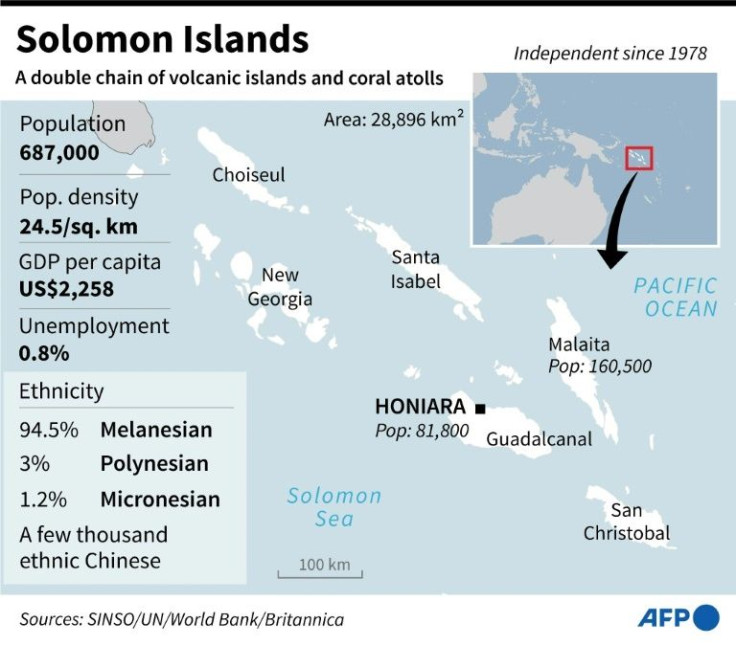
Shattered glass and rubble still lined the streets of Honiara as Prime Minister Manasseh Sogavare addressed the nation, a reminder of the three-day eruption in violence blamed partly on poverty, hunger and frustration with his policies.
"It is very clear that the recent events were well planned and orchestrated to remove me as the prime minister for unsubstantiated reasons," Sogavare said, after a night-time curfew and roughly 150 foreign peacekeepers from Australia and Papua New Guinea helped to restore some calm over the weekend.
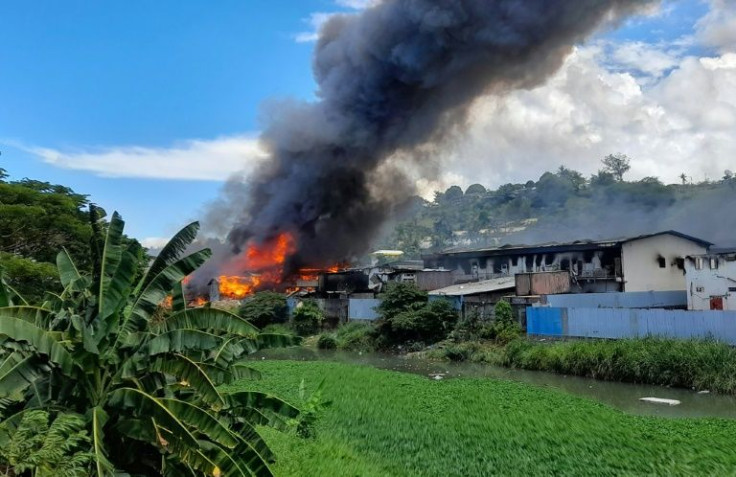
"I want to show the nation that the government is fully intent and nothing will move us. We must and will never bow down to the evil intention of a few people," Sogavare said.
Many residents of the Pacific island nation of 800,000 people believe his government is corrupt and beholden to Beijing and other foreign interests.
During the riots, mobs attempted to torch the prime minister's private residence and parliament before being dispersed by police firing tear gas and warning shots.
Sogavare has already blamed the violence, which incinerated swathes of the capital, on an unscrupulous few leading the people astray with false information. He has claimed that foreign powers opposed to his 2019 decision to switch the Solomons' diplomatic allegiance from Taiwan to China are behind the disturbances.
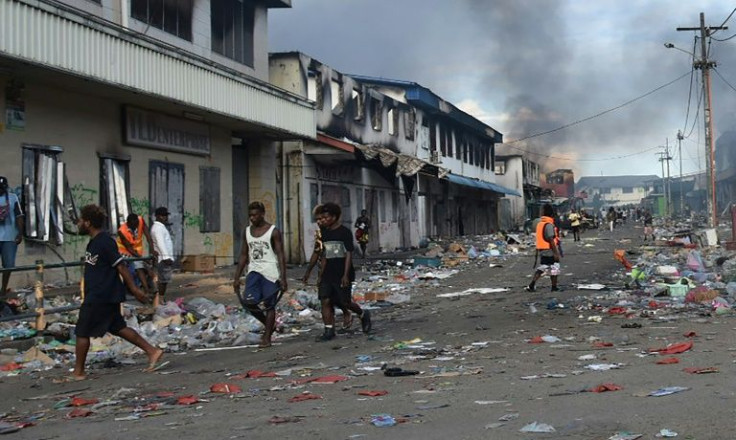
On Sunday, the prime minister said the violence had caused 200 million Solomon Islander dollars (US$ 25 million) in damage and destroyed 1,000 jobs in an economy already squeezed by the impact of the Covid pandemic.
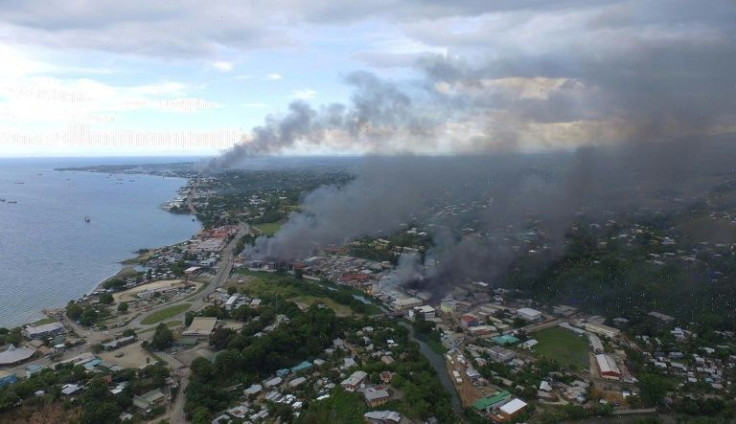
The government was working on a recovery package to help damaged businesses recover, Sogavare said.
And he repeated a promise that the unidentified "instigators" would face the "full brunt" of the law. Over 100 people have been arrested for riot-related activity, the Solomon Islands police said this weekend.
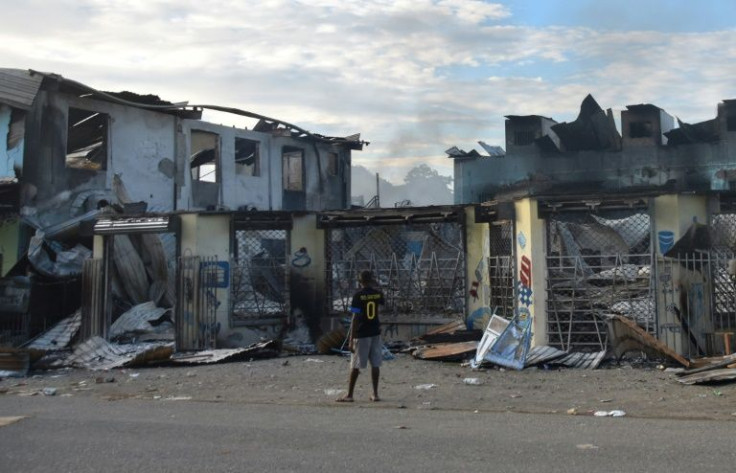
Despite the relative calm of the weekend, people were fearful for the outlook, Red Cross official Kennedy Waitara told AFP.
Waitara said many of the food shops in Chinatown had been burned down in the riots. "It will not be surprising if we have to experience food shortages and a hike in prices," he said.
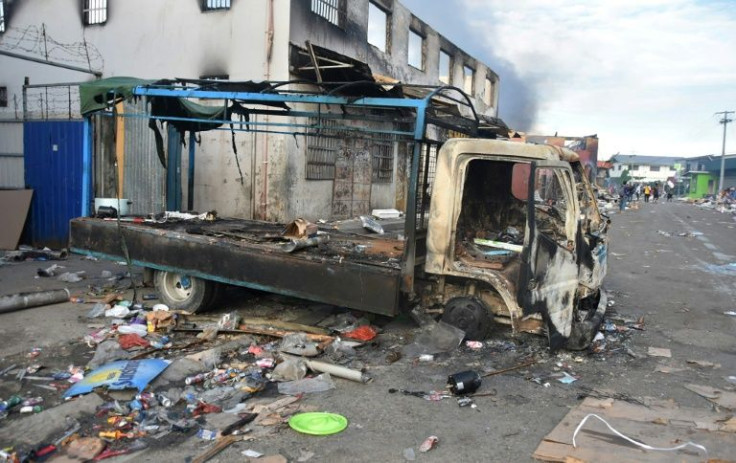
"Unemployment will certainly increase in the coming weeks as people will certainly be out of jobs now and will be finding it difficult."
The Red Cross official said he had already seen some shops raising prices for rice and other goods. People were also starting to queue for gasoline.
Many people were too nervous even to attend church, said Nason Ta'ake, a youth leader at the Wesley United Church in Honiara.
"There are only a few people attending church services as most are still living in fear," Ta'ake said.
After leaving church, parishioners began scouring shops for food and essential goods but very few were open, he said.
Two years of pandemic-induced closed borders have left the already ravaged Solomons economy in tatters, deepening widespread joblessness and poverty.
An early estimate of the cost, released this weekend by the Central Bank of the Solomon Islands, said 56 buildings in the capital had been burned and looted, with many businesses facing over a year-long recovery.
Local police said this weekend that a forensic team was working to identify the charred remains of three bodies found in a shop in the city's burnt-out Chinatown district. The Red Cross official reported few other serious injuries.
Australian Prime Minister Scott Morrison said Sunday he was being regularly briefed about the deployment of peacekeepers in the Solomon Islands, adding that he expected Fiji to also contribute troops.
As tensions escalated last week, the Solomon Islands prime minister had begged neighbours for urgent help. In a letter to Papua New Guinea counterpart James Marape seen by AFP, he called for peacekeepers to be sent for a "period of three to four weeks".
© Copyright AFP 2024. All rights reserved.



















